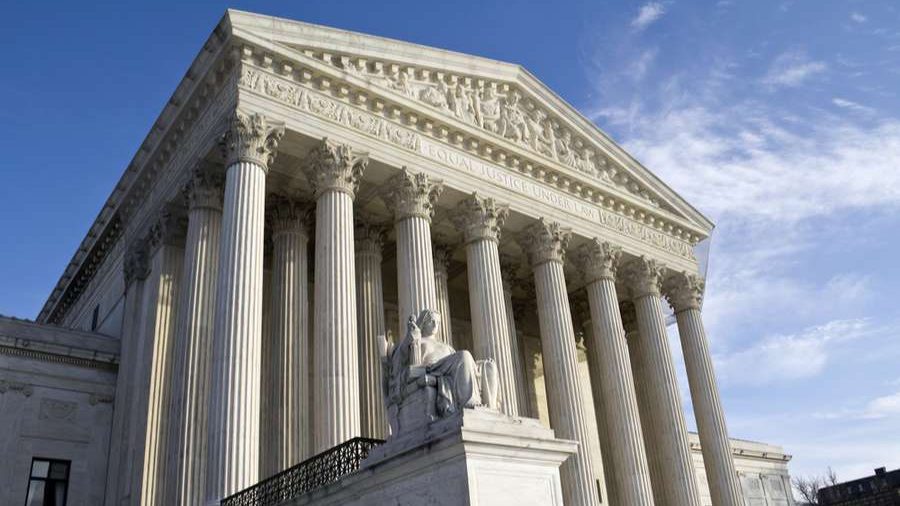Supreme Court justices on Monday heard arguments for and against extending the Civil Rights Act’s “ministerial exception” to Catholic schools when they fire teachers of religion.
“There is no reason for government to get in the business of teaching religion,” stated Eric Rassbach, vice president and senior counsel at Becket who argued the case on behalf of the Catholic schools
On Monday, Supreme Court justices heard oral arguments over the phone in two cases consolidated as one, Our Lady of Guadalupe School v. Morrissey-Berru and St. James Catholic School v. Biel. The court announced in April that it would begin hearing arguments by live teleconference after it was forced to dely much of its planned business in the wake of the coronavirus pandemic.
Both cases focused on the “ministerial exception,” which protects the right of churches and religious ministries to select and terminate ministers without government interference.
The case at hand would decide whether religion teachers at two Catholic schools could be considered religious ministers. The schools di not renew their contracts, saying the decision was performance-based; the teachers themselves claimed age-and-disability-based discrimination.
Becket, the group representing the schools, has said that religious schools have the right to classify religion teachers as ministers, and that courts cannot second-guess their determination.
In 2012, the Supreme Court had decided unanimously in the case Hosanna-Tabor v. EEOC that a Lutheran church school firing a teacher, who taught the full curriculum including religion, was exempt from the Civil Rights Act because the teacher was considered a religious minister.
At Monday’s oral arguments, Supreme Court justices questioned just how broad the ministerial exception was, and whether it could be argued to extend past religion teachers at religious schools to include science teachers or coaches at religious schools who lead the students in prayer.
Rassbach said that the determination about whether a person qualified as “minister” had to consider job function as well as simple job title. The two Catholic schools were clearly looking for religion teaching candidates to be Catholic, and the teachers “are the stewards of their faith” and “leaders of their classroom.”
“These are the people who will teach the faith to the next generation,” he said.
Jeffrey Fisher, representing one of the plaintiffs, said that to classify the teachers as ministers—and thus ensure the schools’ immunity in the decision not to renew their contracts—would be a “sea change” in jurisprudence. It would create “employment law-free zones” and “strip” hundreds of thousands of others, including nurses at religious hospitals “of basic employment protections,” he warned.
Justices Sonia Sotomayor and Ruth Bader Ginsburg said that a broader understanding of the ministerial exemption could affect several federal employment and civil rights protections. “The breadth of exemption is staggering,” Justice Ginsburg said.
Justices also looked to clarify which teachers at religious schools could be considered “ministers.”
Justice Clarence Thomas asked if a religious sister who is a chemistry teacher beginning the class with a prayer could be considered to have a ministerial role, or if a religion teacher who speaks about religion in an objective, “straightforward” manner is a minister.
Justice Neil Gorsuch asked if schools would use a broader exception to apply it to all staff members, including janitors or sports coaches who take a pledge to uphold the teachings of a faith on the job.
Chief Justice John Roberts questioned if a court and not a church was meant to determine the religious function of a staffing role.
The Hosanna Tabor decision helped clarify this, said Morgan Ratner, arguing for the U.S. government in support of the schools. Courts should look at the staff memebr’s roles and try to find “important religious functions” such as preaching, teaching, worship, leadership, or rituals.
This particular case dealt with teachers of religious doctrine at a religious school, she said, teaching the students “how and why to be catholic.”
Fisher, meanwhile, argued that if the religious function of a staffer’s role was the sole test for determining a minister at a church or school, courts would have “impossible entanglement problems” in drawing a line.
Before the Hosanna Tabor decision, he said, for several decades the lower courts “consistently held that lay teachers in religious schools, even if they taught some religion, were outside of the ministerial exception.”

